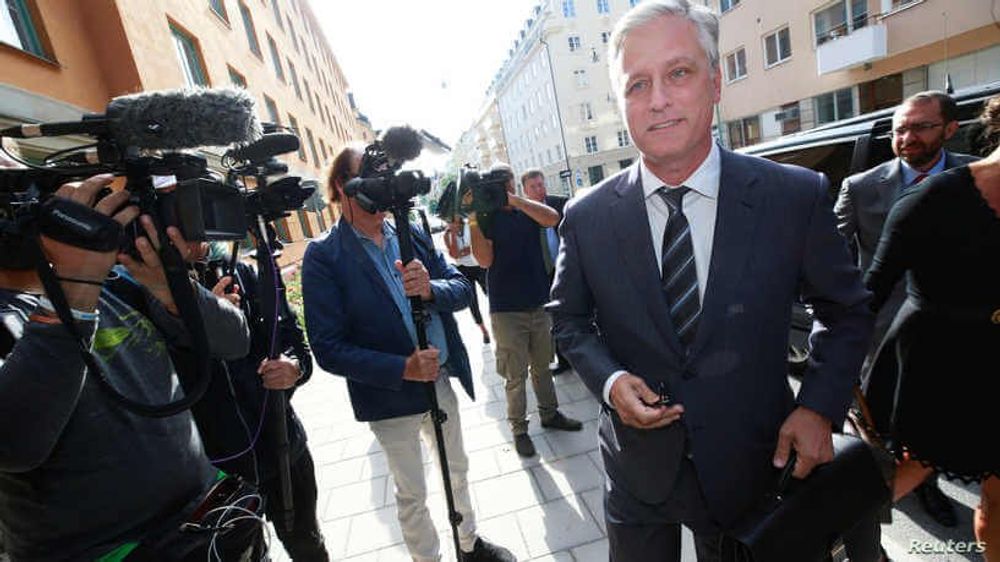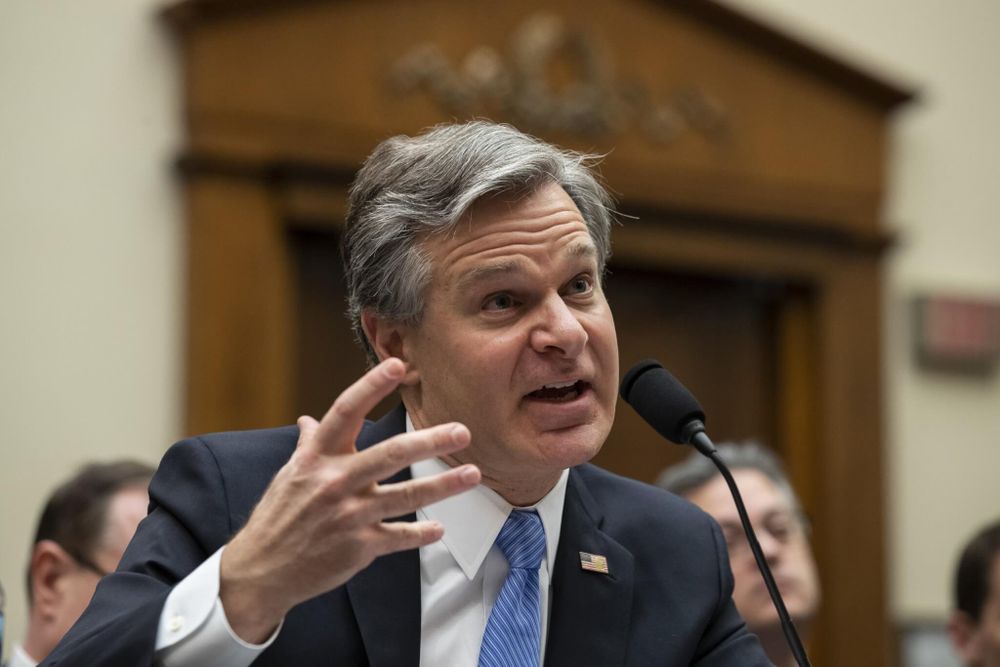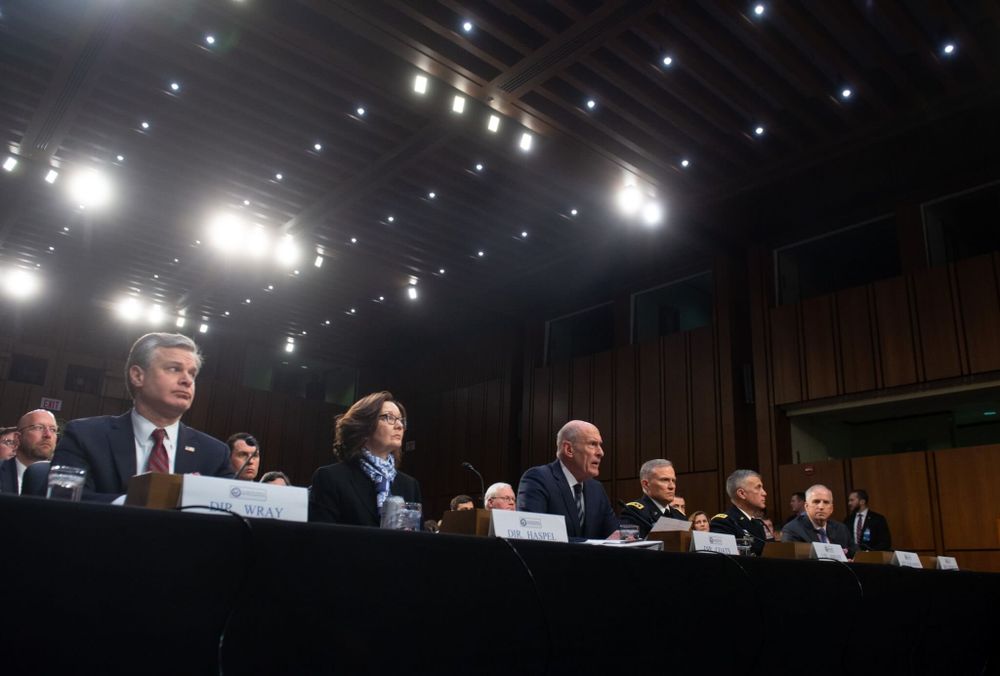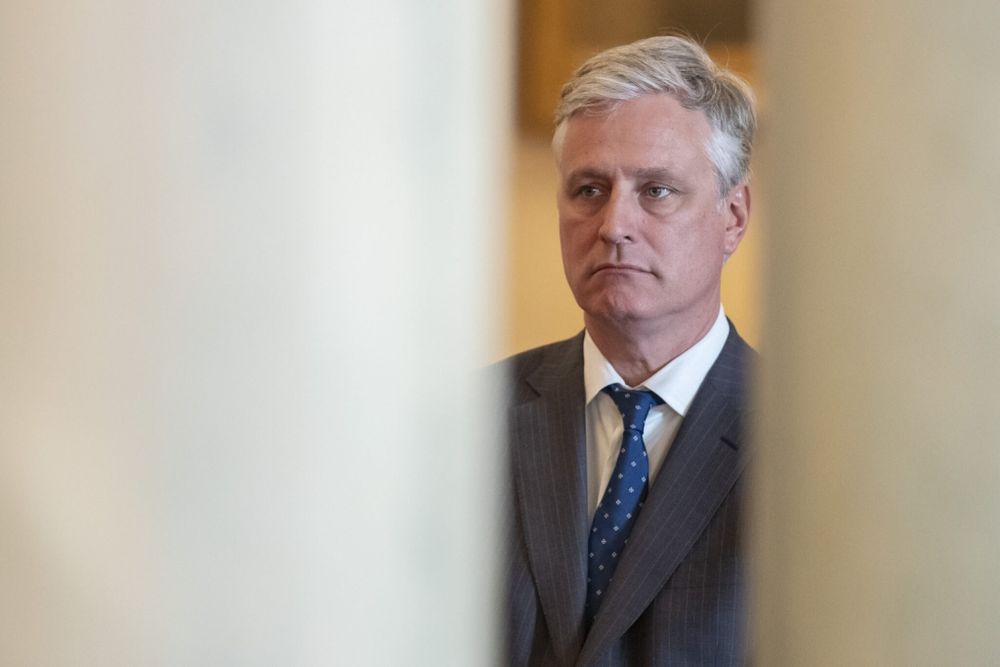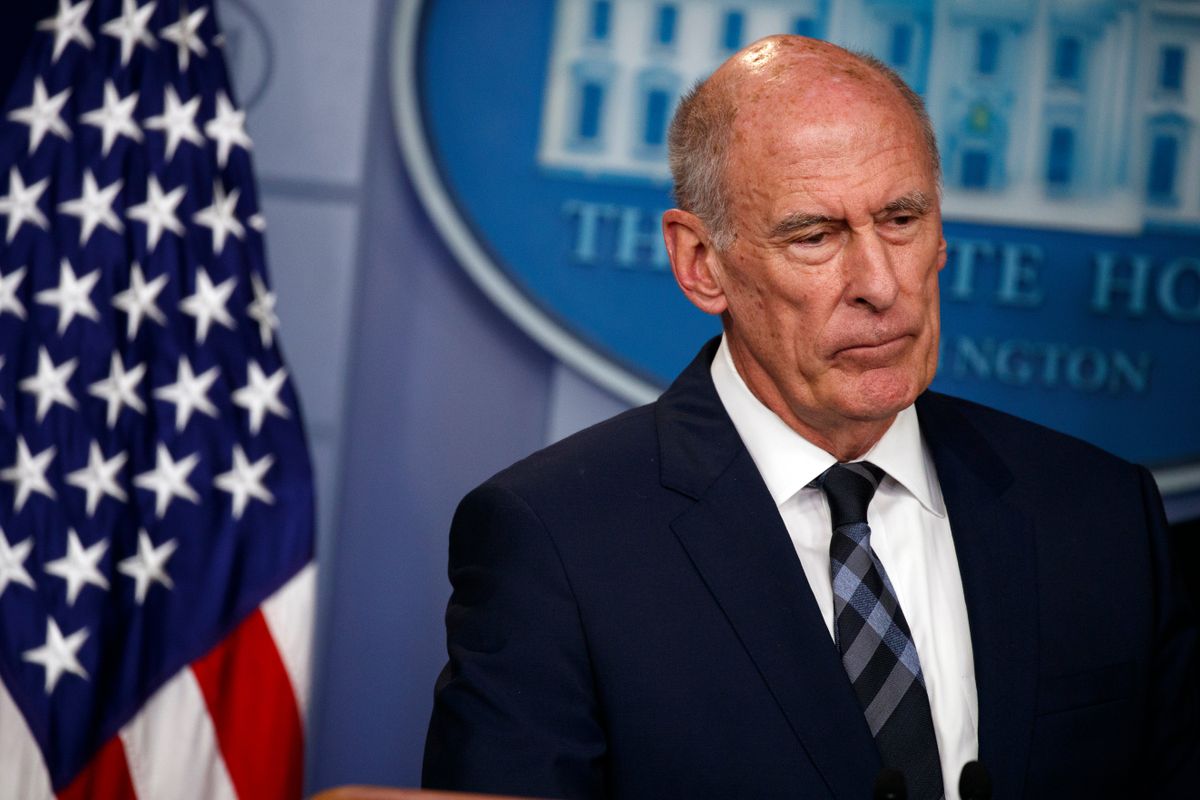
A New Era Dawns for US Intelligence
Washington’s top two intelligence officials are spending their last day on the job Thursday, preparing to leave the nation’s intelligence community in the hands of an acting director as U.S. President Donald Trump oversees an overhaul of his intelligence leadership.
The departures of Director of National Intelligence Dan Coats and his top deputy, Sue Gordon, come as tensions rise between China and a protest movement in Hong Kong, and while other potential crises simmer in the Persian Gulf, on the Korean Peninsula and elsewhere.
Trump announced Coats’ resignation on Twitter late last month and followed up less than two weeks later with a tweet about the resignation of Principal Deputy Director of National Intelligence Sue Gordon, who had been in line to become the acting director.
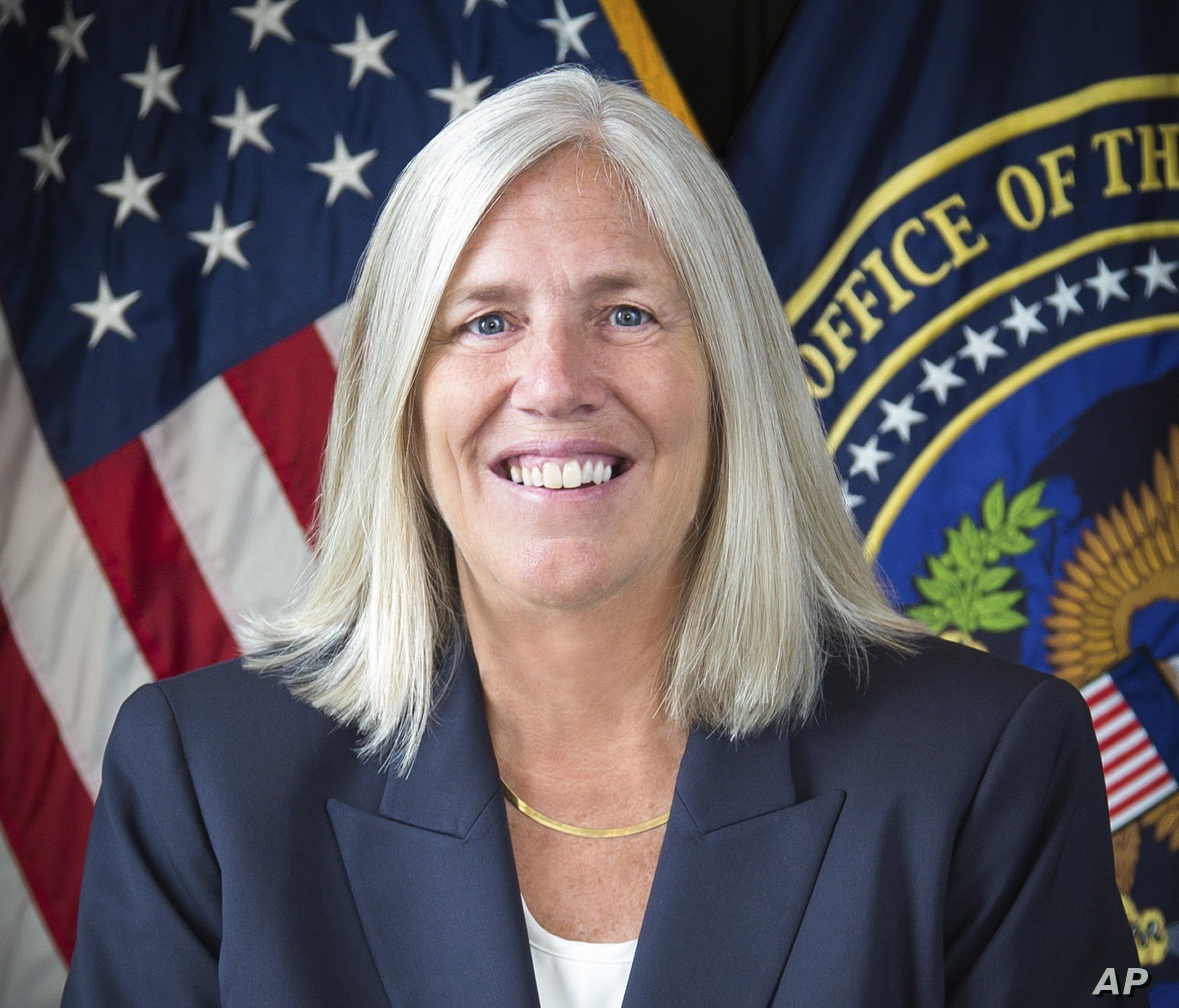
But in a note accompanying her resignation letter, Gordon made clear her departure was an “act of respect & patriotism, not preference.”
“You should have your team,” she wrote.
Trump selected Coats, a former Republican lawmaker and one-time U.S. ambassador to Germany, to be his top intelligence official shortly after taking office.
But while Coats quickly won praise from lawmakers and veterans in the U.S. intelligence community for “speaking truth to power,” his public assessments repeatedly clashed with the president’s own assertions.
Read also: US Intel Chiefs Warn Washington Risks Losing Friends, Influence
Most recently, Coats and other U.S. intelligence chiefs stoked Trump’s ire this past January when they testified before Congress, contradicting the president’s assessment of Iran, of U.S. efforts to denuclearize North Korea as well as the president’s declarations that the Islamic State terror group had been defeated.
In a series of tweets, Trump declared Coats and the others, “are wrong!” and further suggested, “Perhaps Intelligence should go back to school!”
NEW: @POTUS taking a shot at his intelligence chiefs on #Iran – calls them “extremely passive and naive when it comes to the dangers…They are wrong!” pic.twitter.com/hkwCZDw7OT
— Jeff Seldin (@jseldin) January 30, 2019
Coats also publicly split with the president in July of last year, when he told an audience at a security forum that Trump’s decision to meet alone with top Russian officials at the White House was, “probably not the best thing to do.”
There was also this moment from the #AspenSecurity Forum in July 2018, when outgoing @ODNIgov Dir Coats was asked about @POTUS’ White House mtg w/#Russia FM #Lavrov & then Amb #Kislyak…
“[Sighs] Probably not the best thing to do”https://t.co/KjNaAOeAEw— Jeff Seldin (@jseldin) July 28, 2019
For now, the U.S. intelligence community will be led by Joseph Maguire, a retired admiral and former Navy SEAL, who until now had been serving as director of the National Counterterrorism Center (NCTC).
Maguire has garnered praise both from intelligence officials, including Coats, and from key lawmakers.
“I’ve known Admiral Maguire for some time, and I have confidence in his ability to step into this critical role,” Richard Burr, the chairman of the Senate Intelligence Committee, said last week.
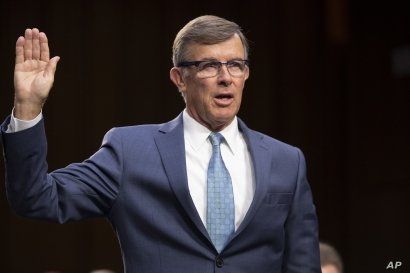
During his NCTC confirmation hearing before the Senate Intelligence Committee last year, Maguire assured lawmakers he would not allow politics to influence how intelligence would be presented to the president.
“I am more than willing to speak truth to power,” he said told lawmaker at the hearing last year. “To color and shape the information to please other folks would be a disservice.”
Before naming Maguire as his acting director of national intelligence, Trump announced he planned to nominate Republican Congressman John Ratcliffe to the post. But Ratcliffe withdrew his nomination days later, following growing questions about his credentials and experience.
A “humbled and honored” @RepRatcliffe tweets he asked @POTUS to nominate someone else to @ODNIgov
“I do not wish for a national security and intelligence debate surrounding my confirmation, however untrue, to become a purely political and partisan issue” pic.twitter.com/pg8ScbEBsx— Jeff Seldin (@jseldin) August 2, 2019
Read also: Trump’s Pick for National Intelligence Director Withdraws
Trump has said he is considering several candidates to serve as a permanent director of national intelligence, but told reporters last week, “I’m in no rush because we have a great acting [director].”
“That’s a job that everybody wants, DNI. Everybody” Trump said. “We’ll come up with somebody that’s great. We have a lot of choice. A lot of people want the job.”
Reaction from Intelligence Community
Despite such assurances, some former U.S. intelligence officials are leery, expressing concern that Trump will ultimately seek to appoint a political ally, like Congressman Ratcliffe, instead of an experienced intelligence hand.
Trump “is clearly ignorant of the wounds he inflicts on US national security,” Larry Pfeiffer, a former CIA chief of staff and former senior director of the White House Situation Room, tweeted last week following the news of Gordon’s resignation.
Sue Gordon’s forced resignation as deputy DNI today is an assault on inteligence. @realDonaldTrump is clearly ignorant of the wounds he inflicts on US national security.
— Larry Pfeiffer (@LarryPfeifferDC) August 8, 2019
Rolf Mowatt-Larssen, a former veteran CIA officer who served as the spy agency’s Europe division chief, was even more pessimistic.
“This is a sign Trump is going to do something unacceptable in his efforts to control intelligence&law enforcement and consolidate power,” he tweeted.
Deputy Director of National Intelligence reportedly just met Trump and decided to resign. I know Sue Gordon personally. She’s a loyal American. This is a sign Trump is going to do something unacceptable in his efforts to control intelligence&law enforcement and consolidate power. https://t.co/jotSnj3x95
— Rolf Mowatt-Larssen (@AmericanMystic) August 8, 2019
Some key lawmakers have also expressed distress at the way Trump has handled the country’s intelligence agencies.
“The president has shown that he has no problem prioritizing his political ego even if it comes at the expense of our national security,” Senate Intelligence Committee Vice Chair Mark Warner, a Democrat, said in a statement last week.
 O’Rourke Restarting White House Bid As Battle Against TrumpNext PostHickenlooper Ends White House Bid, Weighs 2020 Senate Run
O’Rourke Restarting White House Bid As Battle Against TrumpNext PostHickenlooper Ends White House Bid, Weighs 2020 Senate Run


